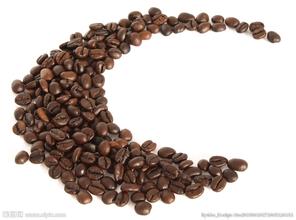High-quality Bolivian coffee flavor introduces Yongas, northeast of Xuemai Manor La Paz
Cup test code #: CAR-003 Bolivia's high-quality estates, very high altitude, perennial low temperature environment, so that coffee fruit growth is slow, tight enough, aroma is also charming, floral aroma is obvious, such as careful treatment, cherries with the same maturity, often have a clean and meticulous high-grade taste, this elegant vanilla and peach flavor is very attractive The fragrance of this champion bean is very diverse, vanilla and sweetness are very lasting. I remember that the admirable champion bean in 2007 was Coffee Manor, but her score was overtaken by the 2008 champion Cafe de Cordillera, when the international judges gave it a high score of 92.03. in 2009, Takesi Snow vein Manor scored 93.36 points, exceeding the 2008 champion, and the bidding price was as high as US $35.05. it was the highest bid in 2009 in the CoE national competition! Osher has been bidding for Bolivia's champion beans for three years in a row. She is really attracted by her delicate floral fragrance, charming sweet vanilla and clean and changeable flavor. In 2010, under the mixture of many factors, Bolivia decided to cancel the national competition to examine this batch of Takesi winning beans. There are mixed feelings and hard-won countries: Bolivia, Bolivia.
Production area: Yungas of La Paz
Administrative town: Yanacahi
Award-winning Manor: Agrotakesi SA
Landowner: Mauricio Ramiro Diez de Medina
Ranking: No.1 (2009 CoE champion)
Farm area: 2500 hectares
Coffee garden: 200 ha
Altitude: 2100 m
Certification: Organic (Ceser & USDA ORGANIC Certification)
Variety: Typica
Treatment: Wet process and Mechanized Drying
Champion batch: 24 cases, 825 kg
International score: 93.36 A number of new coffee varieties have been bred in the highlands of western Ethiopia, which are resistant to fruit disease or leaf rust. Ethiopia has many world-famous types of coffee. Some of the major types of coffee are famous for their unique aroma and flavor, including the following:
Limu Coffee
This kind of coffee grows in areas ranging from 1400 to 2000 meters above sea level. After wet processing, this kind of coffee has a rich fragrance, a full fruit with moderate acidity and alkalinity, high quality and attractive spicy flavor. It is estimated that the average annual production of this kind of coffee is 29000 tons (equivalent to 480000 bags of 60 kg coffee) out of 49000 hectares.
Ethiopia has a unique flavor that is different from other flavors and provides customers all over the world with a wide range of taste choices.
In the highlands of southwestern Ethiopia, the Kaffa, Sheka, Gera, Limu and Yayu Senri coffee ecosystems are considered the hometown of Arabica coffee. These forest ecosystems also have a variety of medicinal plants, wild animals and endangered species.
The highlands of western Ethiopia have given birth to new varieties of coffee that are resistant to fruit disease or leaf rust. Ethiopia has many world-famous types of coffee. Some of the main types of coffee are famous for their unique aroma and flavor. Ethiopian coffee beans grow in close to the natural environment. After years of planting under the same growth conditions, Ethiopian coffee beans have gradually adapted to the environment here. More than 60% of coffee beans are grown in forests or semi-forests.
Large-scale coffee-growing villages account for about 35% of the country's total coffee production. These coffee farms, which use a multi-tier coffee planting system, are carefully cared for. Coffee farmers do not use chemical fertilizers, but use fallen leaves and animal and plant debris to increase soil nutrition. In addition to coffee, farmers also frequently grow non-coffee crops. Even manor coffee (coffee produced by state-owned farms), which accounts for 5% of the country's total coffee production, shows the characteristics of forest coffee production.
Located in the most advantaged natural conditions, Ethiopia produces unique high-quality coffee every year. Ethiopia's coffee growing cycle brings the joy of harvest to the country every year. Beautiful white coffee flowers will bloom and bear fruit every year from March to April. Only the reddest and ripe fruits are selected as coffee ingredients between September and about December. The export of new coffee starts in November or December every year.

Important Notice :
前街咖啡 FrontStreet Coffee has moved to new addredd:
FrontStreet Coffee Address: 315,Donghua East Road,GuangZhou
Tel:020 38364473
- Prev

Arusha Coffee Manor in Tanzania introduces boutique coffee beans
Coffee growing area: African Coffee: medium concentration Coffee description: refreshing acidity and medium mellow complement blackcurrant and sweet orange flavors processing method: washing with flavors: blackcurrant, orange and lemon-like coffee: Kenya coffee Tanzania coffee from the rich soil of the East African Rift Valley, is an outstanding representative of quality coffee from this region. Its clear
- Next

Taste of Panamanian Coffee Flavor Manor production area Esmeralda Manor
Panama Coffee is grown in the western part of the country, near Costa Rica and the Pacific Ocean. The Boquet district of Chiriqui province is the most famous for its coffee, and Vocan,Santa Clara is also famous. Other areas include David, Remacimeinto, Bugaba and Tole.
Related
- Does Rose Summer choose Blue, Green or Red? Detailed explanation of Rose Summer Coffee plots and Classification in Panamanian Jade Manor
- What is the difference between the origin, producing area, processing plant, cooperative and manor of coffee beans?
- How fine does the espresso powder fit? how to grind the espresso?
- Sca coffee roasting degree color card coffee roasting degree 8 roasting color values what do you mean?
- The practice of lattes: how to make lattes at home
- Introduction to Indonesian Fine Coffee beans-- Java Coffee producing area of Indonesian Arabica Coffee
- How much will the flavor of light and medium roasted rose summer be expressed? What baking level is rose summer suitable for?
- Introduction to the characteristics of washing, sun-drying or wet-planing coffee commonly used in Mantenin, Indonesia
- Price characteristics of Arabica Coffee Bean Starbucks introduction to Manning Coffee Bean Taste producing area Variety Manor
- What is the authentic Yega flavor? What are the flavor characteristics of the really excellent Yejasuffi coffee beans?

